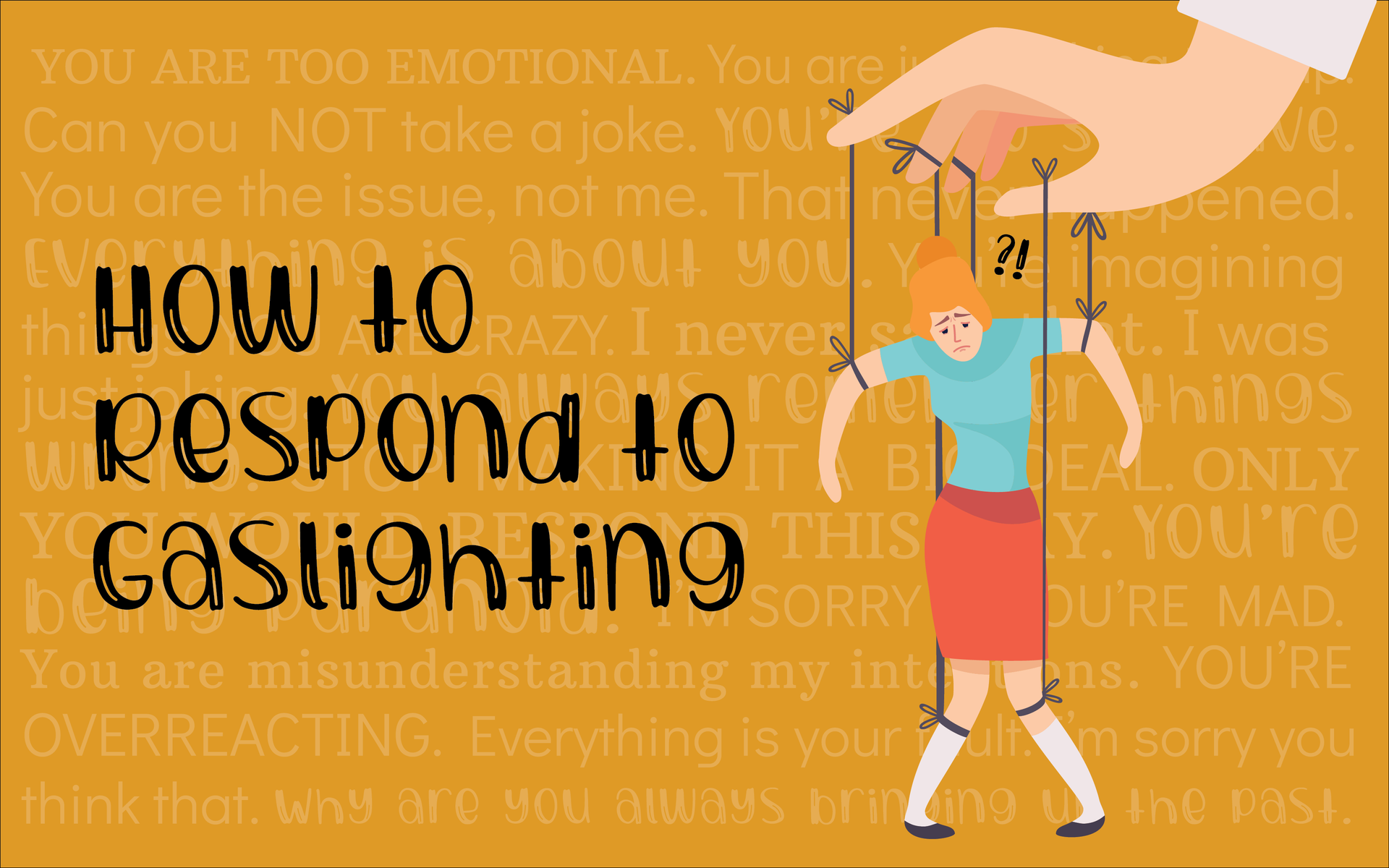Understanding Gaslighting
Advance Minds Blog
A safe space to explore subjects within the community such as mental health, substance abuse and personal identity.
Our safe space also provides the opportunity for real individuals to express their hardships and success through writing.
Understanding Gaslighting: What It Is, Signs, and How to Respond

Understanding Gaslighting: What It Is, Signs, and How to Respond
Gaslighting is a form of psychological manipulation where a person makes someone question their perceptions, memories, or sanity. It’s a common tactic in emotionally abusive relationships, as it enables the manipulator to gain control over the other person by eroding their self-confidence and self-trust.
Recognizing gaslighting and knowing how to respond can help you protect your mental health and regain a sense of self.
1. What Is Gaslighting?
- Definition: Gaslighting is a form of emotional abuse in which a person distorts reality to make another person doubt their perceptions, memory, or feelings.
- Purpose: The goal is often to make the victim feel dependent on the gaslighter’s version of reality, diminishing the victim’s confidence and autonomy.
- Origins of the term: The term "gaslighting" originated from the 1938 play Gas Light, in which a husband manipulates his wife into believing she is losing her mind by altering small things in their home and denying her observations.
2. Signs of Gaslighting in Relationships
- Denial of facts: The gaslighter frequently denies events or conversations happened, making you doubt your memory.
- Trivializing emotions: They dismiss your feelings or experiences as “overreacting” or “being too sensitive.”
- Shifting blame: Gaslighters often twist situations to make you feel responsible for issues or problems they created.
- Contradicting memories: They provide alternative accounts of events, making you question your recollection.
- Undermining confidence: Comments like “You’re imagining things” or “You don’t know what you’re talking about” are common.
- Isolation tactics: They might subtly discourage or separate you from family or friends, increasing your reliance on them for validation.
3. Effects of Gaslighting
- Low self-esteem: Constant doubt about your own thoughts and feelings can lead to diminished self-worth.
- Confusion: You may find it hard to trust your memory or perception, leading to feelings of disorientation or bewilderment.
- Anxiety and depression: The undermining nature of gaslighting can lead to increased anxiety, stress, and feelings of hopelessness.
- Dependency on the abuser: As your confidence erodes, you may start relying on the gaslighter’s version of reality, reinforcing their control.
- Self-doubt: A person may question their abilities, choices, and sense of self, often feeling unable to make decisions independently.
4. Recognizing Gaslighting Tactics
- Outright denial: The gaslighter completely denies events, even when there’s evidence.
- Minimizing your thoughts: They may dismiss your experiences or feelings as “no big deal.”
- Using personal information against you: They exploit your vulnerabilities to manipulate or demean you.
- Gaslighting by proxy: They may involve other people, getting friends or family to doubt or criticize you.
- Projection: The gaslighter may accuse you of their own negative behaviors, turning the tables on any accountability.
5. Common Phases of Gaslighting
- Lying and exaggeration: They make false statements or exaggerate events to create doubt.
- Repetition: Constant repetition of lies reinforces the false narrative, eventually making the victim believe it.
- Escalation: As the gaslighter gains more control, the tactics become more intense, often leading to emotional dependency.
6. Who Gaslights and Why?
- Personality disorders: Gaslighting is common in individuals with narcissistic or antisocial personality disorders, where manipulation serves as a way to maintain control.
- Low self-esteem: Insecurity can lead some people to gaslight others as a way to boost their own sense of importance.
- Control needs: Gaslighting is a tactic to exert power over someone, creating dependency and reinforcing the gaslighter’s control.
- Insecure attachment: Individuals who struggle with intimacy or healthy communication may use gaslighting as a defense mechanism.
7. How to Recognize If You Are Being Gaslit
- Constant self-doubt: If you frequently question your own memories, perceptions, or decisions.
- Feeling overly sensitive: Gaslighters may accuse you of being too sensitive, which can make you question your reactions.
- Questioning your sanity: If you feel like you’re “going crazy” or often second-guess your reality.
- Apologizing excessively: Constantly feeling like you’re in the wrong or apologizing for things that aren’t your fault.
- Loss of self-trust: Relying on someone else’s version of events or feelings, unsure of your own instincts.
8. How to Respond to Gaslighting
- Trust your instincts: Your feelings and perceptions are valid, even if someone else denies them.
- Document conversations: Writing down exchanges can provide clarity and reinforce your memory of events.
- Set clear boundaries: Refuse to engage in arguments about your reality or perceptions.
- Limit engagement: Minimize your exposure to gaslighting behavior whenever possible, especially if it’s not someone you can easily distance yourself from.
- Seek support: Talk to friends, family, or a therapist who can provide an outside perspective and affirm your experiences.
- Prioritize self-care: Activities that boost your self-esteem, like journaling, exercise, and mindfulness, can help reinforce self-worth.
9. Therapeutic Approaches for Gaslighting Survivors
- Cognitive Behavioral Therapy (CBT): CBT helps survivors rebuild self-trust by recognizing and challenging distorted thoughts.
- Dialectical Behavior Therapy (DBT): DBT provides tools for emotion regulation, which is helpful for managing stress caused by gaslighting.
- Trauma-focused therapy: For those who’ve experienced prolonged gaslighting, trauma-informed approaches can help process and heal.
- Assertiveness training: Therapy can help strengthen assertiveness skills, enabling you to set healthy boundaries and resist manipulation.
10. How to Support Someone Experiencing Gaslighting
- Listen without judgment: Offer a safe space for them to express feelings and validate their experiences.
- Encourage self-reflection: Help them identify the signs of gaslighting and reinforce that their feelings are legitimate.
- Help them seek professional help: Therapy can provide critical tools for understanding and responding to gaslighting.
- Empower them: Encourage self-trust and decision-making, reminding them of their autonomy and worth.
- Avoid pressuring them: Victims may take time to recognize the abuse, so provide gentle support rather than pushing them to take action.
11. Healing from Gaslighting
- Rebuild self-trust: Focus on developing confidence in your thoughts, feelings, and perceptions.
- Self-compassion: Acknowledge that being manipulated was not your fault; practice kindness toward yourself.
- Set healthy boundaries: Establish and maintain firm limits with others, especially those with manipulative tendencies.
- Connect with others: Surround yourself with people who respect and value you, creating a supportive network.
- Educate yourself on gaslighting: Knowledge is a powerful tool; understanding gaslighting helps you recognize it and avoid similar situations in the future.
Final Thoughts:
Gaslighting is a harmful manipulation tactic that can deeply impact one’s mental health and sense of self. Recognizing gaslighting and learning to trust your own perceptions are essential steps toward healing. With the right support and tools, individuals can recover from gaslighting, regain self-confidence, and establish healthier relationships.
















